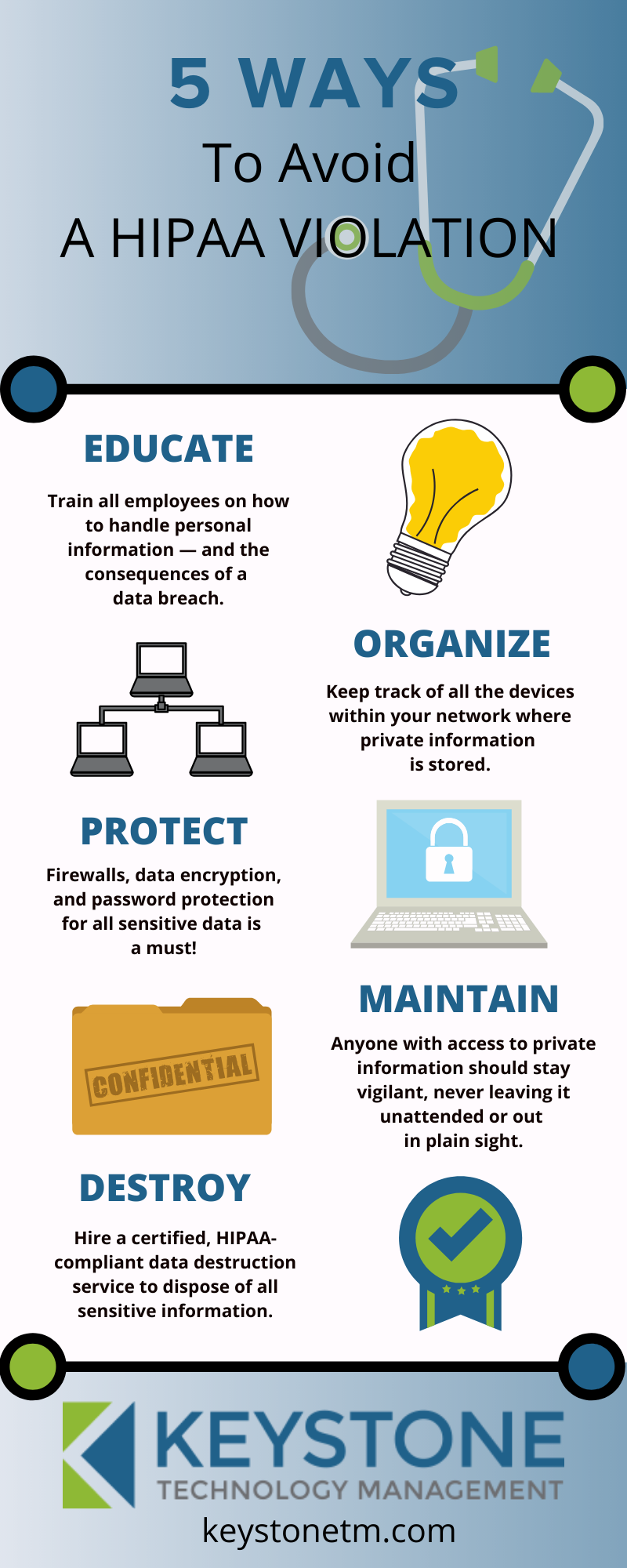 Handling patients’ confidential personal information has always been a crucial aspect of working in healthcare, but the world has changed dramatically since the Health Insurance Portability and Accountability Act, or HIPAA, was enacted in 1996.
Handling patients’ confidential personal information has always been a crucial aspect of working in healthcare, but the world has changed dramatically since the Health Insurance Portability and Accountability Act, or HIPAA, was enacted in 1996.
Cybersecurity wasn’t much of an issue back then, but now, the threat of electronic hacking, identity theft, and credit fraud are pressing matters affecting all Americans — not to mention people across the globe. HIPAA regulations have adapted to an increasing reliance on technology in healthcare and other industries that process protected health information (PHI). HIPAA mandates that those “covered entities,” as they’re called, do whatever it takes to manage and dispose of confidential data in a safe, responsible manner.
Data destruction companies such as Keystone Technology Management play an integral role in the healthcare field because when it’s time to upgrade or get rid of electronic equipment, failing to follow HIPAA protocol can have serious consequences. It’s unlawful to simply throw away old electronic devices where PHI is stored, and beyond that, it’s just bad for business.
Here are just a few potential pitfalls of a data breach for a healthcare organization:
- Paying for patients to have their credit monitored or identities protected by a third-party service.
- Conducting an investigation into the breach, involving outside consultants.
- Managing bad publicity.
- Lawsuits by those affected by the breach.
- Fines for violating the law.
- Lost business.
It’s clear why so many businesses turn to our certified data destruction service when they need to dispose of outdated or faulty equipment that stores — or could possibly store — patients’ or customers’ confidential information. It just doesn’t pay to take chances when it comes to patient privacy. All of the following equipment can hold confidential data and thus must be securely destroyed:
- Desktop or laptop computers
- Tablets
- Portable hard drives
- Mobile phones and handheld devices
- Servers
- CDs
- DVDs
- Tapes
- Printers
- Photocopiers
- Fax machines
While it’s essential for healthcare organizations to protect patients’ privacy and steer clear of costly data breaches, it doesn’t have to be a big, expensive hassle. It just takes a little preparation and vigilance. We’ve outlined some simple suggestions for avoiding a HIPAA violation in this infographic.

For more information about our data destruction services or how we can help your business protect sensitive data in other ways, feel free to give the team at Keystone Technology Management a call or fill out an online contact form today.
